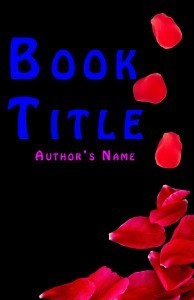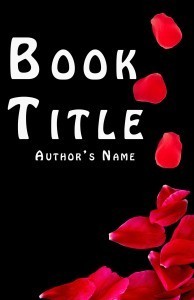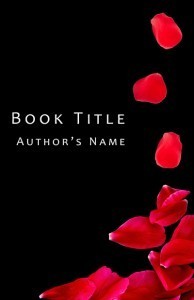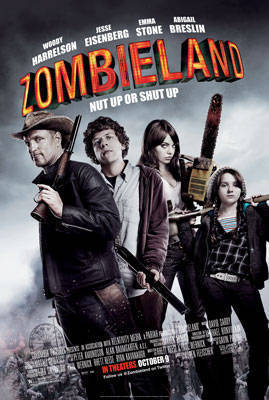Steven Ramirez's Blog: Glass Highway, page 45
August 3, 2012
For Authors Brand is Everything
[image error]I’ve spoken about this before. One of the great challenges for an indie author is dividing time between actual writing and marketing. Sometimes I think about giants like Hemingway, Faulkner and Twain. How did they do it?
If I had to pick one person from history to travel forward in time though, it would be Mark Twain. That guy knew brand and I’m sure he would do very well using Facebook and Twitter. Can you imagine? Here are a few of his most famous quotes. And look—they fit into 140 characters!
All right, then, I’ll go to hell.
I didn’t attend the funeral, but I sent a nice letter saying I approved of it.
There are lies, damned lies and statistics.
Of course, this guy already figured it out—he likes to tweet as Mark Twain. Maybe I should tweet as Truman Capote.
Fame is only good for one thing—they will cash your check in a small town.
Getting It Right
Born Samuel Langhorne Clemens, the first thing this famous author did was to fix his name. Mark Twain has a nice resonance, doesn’t it? It’s easy to remember and it fits nicely on a book cover. I’m not sure that’s what he was thinking but it turned out well for him. Stephen King is another great name. And he was lucky enough to come into the world with that moniker. Yay Steve!
We all know Mark Twain as a writer, humorist, traveler, public speaker and general troublemaker. He had an amazing wit, and could really lay into someone around topics he was passionate about.
I don’t know that he had a publicist but it seems to me he was very conscious of his image—I don’t think they called it “brand” in those days. We are all familiar with the wild shock of white hair, the white linen suit and the ever-present cigar. In my opinion he was a marketing genius.
Shy Will Get You Bupkes
I’ve met many writers over the years, and I will tell you that some are not comfortable in the spotlight. They are introverts who love working behind the scenes, writing great stories which—if they are lucky enough—get turned into movies.
If you ask my wife, she will tell you I am an extrovert. I like being out and about, meeting people and engaging in interesting discussions. That’s just me. But I don’t think I would be comfortable being on the talk show circuit, delivering pithy one-liners in front of a studio audience. I’m better in small groups really, having a lively conversation over dinner.
Which leads me to Brand. Many of the more seasoned authors out there know all about this. But there are those who are just getting started—who want to understand what it takes to not only write but to market themselves. I’m talking to you! As an aside, I haven’t figured it all out but I’m happy to share what I know.
What is Brand Anyway?
Brand is rather a hard thing to define. I’ll use this definition from Merriam-Webster:
A class of goods identified by name as the product of a single firm or manufacturer.
Now let’s modify the definition to apply to authors:
A collection of writings identified by name as the product of a single author.
How about James Patterson or Tom Clancy? You have only to utter their names, book titles and genres and scenes play out in your brain. Those guys get brand.
 When you do it right, here is what happens. Not only is your name recognizable but the name itself becomes embedded in the culture on a global scale. Kind of like Kleenex.
When you do it right, here is what happens. Not only is your name recognizable but the name itself becomes embedded in the culture on a global scale. Kind of like Kleenex.
How many people say, “Can you hand me a tissue?” More often it’s, “Have you got a Kleenex?” The same can be said for Xerox and Coke.
There’s a huge responsibility that comes with this identification though. Call me crazy but I think the Kleenex Corporation wants to ensure that when you think of their products, you picture nice, soft little squares of heaven—scented and unscented—that will make you feel better, especially when you have a cold.
Getting back to authors. When you think of horror, what is the first name that comes to mind? Stephen King, right? Of course. He has spent decades building his brand. He is synonymous with horror.
Can we all hope to achieve that kind of brand recognition? Probably not. But that doesn’t mean we can’t make a nice living. People who love Stephen King don’t just read him. They read John Saul, Dean Koontz and many others. It’s a huge playground. We can all have a chance at getting the ball.
Being Aware 24×7
So what does building your brand mean? For me, it’s awareness. I try to be thoughtful about everything I post. I don’t always succeed. But being aware is important because what gets out into the Internet stays forever. So no drunk tweeting, no profanity and no mean-spirited attacks on others. A good general rule is to always take the high road.
Linking your digital assets is important as well. There should be a synergy among the various digital destinations you have out there. Now I admit that I am not there yet—mostly due to a lack of time. But I am chipping away at my digital personas every week, and over time you will see a smooth, logical connection between my various sites.
 Here’s a quick tip to get you started. Want to know what not to do on Twitter? Don’t create a Twitter account, leave the default image and expect to get followers. I mean, seriously? Who in the world is going to follow this?
Here’s a quick tip to get you started. Want to know what not to do on Twitter? Don’t create a Twitter account, leave the default image and expect to get followers. I mean, seriously? Who in the world is going to follow this?
Also don’t create some arcane Twitter handle with no description. People want to know something about you. Tell them. Remember, you are building your brand and it’s supposed to stand out from everything else out there. More importantly it’s supposed to mean something.
I’ll leave you with this article by Brian Solis, “The Importance of Brand in an Era of Digital Darwinism.” In it, he says this:
The point of natural selection is that not every business will make it.
Substitute “author” for “business” and this gets a little scary. You can write and publish all you want but if you don’t pay attention to your brand, you will die a digital death. It’s a simple as that. I’d love to hear your thoughts.
Related articles
How To Protect Yourself When Social Media Channels Become The Bully (melissaagnes.com)
Dear Gracie: Personal Branding Tips Every Social Media User Should Know (prnewswire.com)
Basic Social Media Mistake Everyone Makes (inc.com)

July 27, 2012
Why Hire A Professional To Design Your Book Cover?
By Deborah Sletten (@TugboatDesign)
Deborah is the owner and principal designer at Tugboat Design. In this post she talks about the importance of a professionally designed book cover and how to look beyond price when choosing a designer.
Let’s face it, whether we want to believe it or not, people really do judge a book by its cover. Unless you’re Stephen King, then they buy your book because of your name, but most independent authors don’t have that luxury, so you need a book cover that stands out from the others.
So why not just design your own cover?
Simple. People can tell. So, unless someone has told them to read your book, they’re most likely going to just skip on past. Now, in some situations, if you have an eye for design, then you can get away with making your own cover. Look at it this way; if your car gets hit and you need to replace the bumper, do you do it yourself or hire someone? Some people can fix their own bumper, and some people think they can fix it, but a majority of the time, you can tell that you fixed your car. When you hire a professional, your car’s bumper is going to look brand new.
But aren’t professional book cover designers expensive?
Yes, some can be, but if you look around a little harder and don’t just pick the first designer that comes along, you’ll find that book covers can be as inexpensive as $40. And just because it’s low-priced, doesn’t mean it’s not high quality. There are a few businesses out there that have an author’s best interest at heart. We know you are just starting out, so we want to help. We don’t need to charge an arm and a leg since it’s an online business. If you come across a company that will design your book cover for $400 and you still have to pay for the images in addition to that, keep looking. Just because they’re expensive does not make them the best choice.
Have I convinced you yet? Well, if not let me show you a few things that a designer can do to make your cover look professional vs. homemade. I want to show you the aspects that we look at, that most people don’t even think about.
I took one of our Ready-To-Go covers and exaggerated a few points to show you what I’m talking about. The first thing I look at when creating a book cover is what the main focus is going to be. First, you want people to be drawn in by the image, then the title, then the author’s name. Every once in a while that order will change depending on the book. So let’s look at the points that I exaggerated.
1. Font Color: Due to the color, this cover is just hard to look at. Blue on black never works, but people try to do it. Actually any dark color doesn’t really work on black because it’s hard to read. Now the pink for the author’s name is easier to read, but why is it pink? You want the colors of the text to mesh with the colors in the image. Since red in this instance would not work too well on black (plus it would be way too much red on the cover) your best contrasting color will be white, and there is white in the petal image as well.
So we’ve fixed the color. It’s looking better but we have more work to do.
2. Font: The image gives off an elegant, soft feel, yet the text looks hippy. In this case, you want the image to be what stands out, and instead, the text is fighting with the image. Plus, the author’s name is being squished by the title. Even though you want that to be the last thing you look at, you don’t want it to be so hidden you can’t find it. So we need to shrink the text and find a more suitable font that goes with the image.
3. Readability: This is the cover that we have for sale. The text is much smaller, and is no longer fighting with the image. Now being able to read it is also a concern that I take into consideration. This font has been tracked (spaced) out by 200 pts. This makes it easier to read even though it is small. If I hadn’t tracked it out, it would be a lot more difficult to read. Also, depending on the title of the book, the font could be a little bit bigger.
So there’s a little insight into a professional designer’s eye. There’s a lot more that we look at, but those are just a few points that I wanted to share with you. I hope while writing your book, you consider hiring a professional cover designer, whether it is us or another company. We can’t guarantee that you’re going to sell more books because of a professional cover, but we can guarantee that more people are going to look at your book because it has a professional cover. The rest is in your hands, so if you can write an attention drawing description, then your odds just keep going up.
Deborah –Tugboat Design
Tugboat Design offers professional book cover design for eBook and paperback. We also provide formatting services for Amazon, Barnes and Noble and Smashwords, along with six different website design services.
Find us at:
www.tugboatdesign.net
Twitter: @TugboatDesign
Related articles
Please, judge a book by it’s cover… (denysemitterhofer.wordpress.com)
What is to become of the book cover in the age of the e-book? (teleread.com)
Designing book covers (frootbat31.wordpress.com)

July 20, 2012
How Can Authors Use Pinterest?
When I made the decision to go down the indie author path I was advised that social media would become a fundamental part of my daily routine. They weren’t lying. Social media is one of those things that can consume every available second of every day if you let it. It’s like rust—it never sleeps, never takes a sick day and it eats lunch at its desk. And for a writer, that’s bad. We have enough things in our lives to keep us from writing.
Nevertheless the benefits outweigh the risks in my view. Although still a n00b in many ways, I have learned a few useful things. In fact, I’m always learning. And with others out there sharing their experiences, mistakes are easier than ever to avoid—at least in theory.
Certainly Twitter and Facebook are key. The challenge is there are other new tools coming to market every day, and I am trying my best to stay abreast. It ain’t easy.
Do No Harm
For me, the first rule of social media is to do no harm. That’s right, just like real doctors. These are powerful tools we are dealing with, and they can do a lot of damage. You only have to look at the trouble people—especially celebrities—get into when they engage in drunk tweeting. (I was going to link to some relevant examples but they are not fit to reprint.) And once you do it, it’s like that line from ‘When Harry Met Sally’: “You can’t take it back…. It’s already out there!”
Building the Platform
Everyone seems to be talking about building their platform which is important if you want to sell books. Twitter of course is great for this. And if you’re a writer who’s just starting out, here are four things you can do:
Listen
Engage
Measure
Adapt
Note that I created this list based on an article by Brian Solis. They’re a little different because my list works better for me. If you really want to learn how to do things, read anything by Brian—especially his masterful book Engage!
Listen. You probably shouldn’t start diving in and tweeting right away. You need a plan. Follow people and listen to the conversations going on out there. If you’re already published, search the Internet to see if anyone is talking about you or your work.
Engage. Now join the conversation by adding value. Retweeting is a great way to begin. And if you can, add your own commentary. Oh yeah, and use hash tags. Those help when people are searching for particular topics.
Measure. This is important. The reality is you should always be measuring. How do you know if things are getting better if you don’t measure? The easiest measurement for Twitter is number of followers. You can also use more sophisticated tools to measure sentiment.
Adapt. Based on what you learned, refine your approach—especially if you find that people are being mean. One thing Brian Solis advises is to be genuine. That will certainly help you. And you might want to think about developing a thick skin.
Facebook is another story. For one thing you measure with Likes. I’m not going to go into fan pages here. That’s a topic in its own right.
Then there’s your blog. In order for a blog to be successful you should post regularly. I’ve chosen once a week because that’s all my schedule will allow. Check out Joel Friedman. He posts several times a week—consistently. And it’s good stuff.
What about Pinterest?
So finally we get to this question. What—if anything—is a writer supposed to do with Pinterest? Well, from a social media perspective it’s just another channel.
I’ve been playing with Pinterest for a while now and although I enjoy pinning things to boards, I’m not really sure how I as an author am supposed to leverage it to sell more books. I would love some feedback here because I know there are lots of very smart authors out there who may have already figured this out.
Or could it be that this is just one of those tools that are purely for fun? In that case, I probably won’t spend much time with it.
I ran across an article entitled “5 Pinterest Boards for Content Marketers.” The Pinterest examples here are excellent but are for brands—not authors. They can still teach us something.
What I’ve observed so far is that Pinterest is a great way to let people get to know you by the boards you create and the things you pin to them. Since I began, people have been liking my pins which is always heartening because I’ve now created an instant connection with someone I never met. And that might—just might—lead them to check out my work.
So perhaps in reality Pinterest is useful for building an author’s platform. Like Facebook it can show the personal side. Also it’s evolving.
What are you using Pinterest for? Have you found engaging that way to be productive? I’d love to know because I’m feeling the pressure to use Instagram. I know—don’t get me started.
July 13, 2012
Should Novels Read Like Movies?
This is going to sound crazy but stay with me—you might actually enjoy it. I finished a first draft of my new zombie novel, and now I’m going back through it, adding scenes, deepening characters, moving things around—all the things you’d expect in order to make the thing readable.
As I look at the structure, I have the overwhelming urge to make the novel read like a movie. Why? Well first, because I’ve written a lot of screenplays over the years and it has become a habit. Second, because most people have been trained by movies to expect a certain kind of storytelling experience—namely the three-act structure (cue Beethoven’s “Ode to Joy”). Not that this is a movie invention. Aristotle got to it before anyone else. In Poetics he talks about a beginning, a middle and an end. Though he was referring to dramatic plays, the same applies to movies.
So at this point you’re probably saying, “Three-act structure—Der!” Humor me.
While preparing to write my book, I read the excellent Write Great Fiction – Plot & Structure by James Scott Bell. One of the things that struck me was Bell’s insistence that the three-act structure is alive and well. So no long, ponderous treatise on the meaning of life for me. Nope, I’m going for pure excitement, baby.
I know you know this already but I’ll just state it because it helps me focus. Here is the three-act structure:
Act One: A problem is introduced.
Act Two: The protagonist struggles to understand what the hell is happening—eventually they figure it out.
Act Three: Everything is resolved.
What’s great about the structure is that it can apply to any kind of story—comedy, drama, romance, horror, sci-fi and fantasy. Now, let’s look at how this relates to movies. There is a specific structure that must be followed when writing a screenplay. Here are the beats according to Syd Field:
Act One: Setup
- The Inciting Incident
- First Turning Point
Act Two: Confrontation
- Midpoint
- Second Turning Point
Act Three: Resolution
Because I’m writing a zombie novel, I’m using the very funny ‘Zombieland’ as an example. The beats that follow are courtesy of The Script Lab.
Act One: Setup
The Inciting Incident: The zombie apocalypse has come to pass. Looking for his parents, Columbus meets Tallahassee on the road. They agree to team up.
First Turning Point: In search of a Twinkie, the boys meet Wichita and Little Rock, who proceed to rob them of their weapons and vehicle. The girls are determined to make it to Pacific PlayLand which is purported to be zombie-free.
Act Two: Confrontation
Midpoint: As the four are driving together, Columbus has the chance to leave and continue looking for his parents but instead he decides to stay with the group.
Second Turning Point: After Columbus accidentally kills Bill Murray at his mansion, the girls ditch the boys again and head off to Pacific PlayLand.
Act Three: Resolution
Columbus and Tallahassee go after the girls and eventually save them from a nasty zombie horde in the amusement park. Tallahassee finally gets his Twinkie.
It’s my feeling that the reason ‘Zombieland’ doesn’t drag is that it’s only eighty-eight minutes as opposed to two hours. That means a short second act. In Write Great Fiction, Bell lays out the three-act structure as points in your story. So, Act Two should begin at the one-fifth mark and Act Three should begin at the three-quarter mark.
I’m planning a three-hundred page novel, so for me Act Two should begin at around page sixty. And Act Two should begin at page two-hundred twenty-five. In addition to these guidelines I also plan to add the screenplay beats. I’m not sure that will work but I’m going to give this try. Why? Because a great novel is the result of multiple drafts. Since I’m taking the time to harden the structure anyway, I feel the time spent on this experiment is worth it. In a future post I will be report on what I learned.
So wasn’t that fun? You’re going to drop everything and rewrite your novel to read like a movie now, right? I’d love to hear from you to see whether you agree or disagree with this approach. Over the years I’ve read very long, boring novels where early on I’m asking, Why can’t you just get on with it? I’m sure you have too. I feel we’ve all become impatient, and we expect things to move along at a quicker pace. Like movies, right? Wish me luck.

July 6, 2012
I Will Get Better
This is for all the new indie authors out there who like me are coming out of their skin over indie publishing and who want to sell their books more than anything. It’s my hope that we can work together, sharing our experiences, learning from each other and generally having a kick-ass time.
I’ve been writing since I was fifteen. I never made a career of it though—not because I didn’t want to. When I was in my twenties I pursued movies and television like a crazy person. Hey, I live in LA—if you’re not working on a screenplay you can’t get your driver’s license. I did manage to sell one screenplay that was made into a movie. It’s called ‘Killers,’ and you can find it here. So much for my film career. The important thing is I never stopped writing.
For years I sent out short stories and novels, and have collected a lovely pile of rejection slips which will be useful should I ever run out of toilet paper. When Amazon, Barnes and Noble and others made it possible to take control of my own publishing destiny, I went all in.
Like traditional publishing, indie publishing has its own challenges. For one, there are more than a million titles in the Kindle Store. I haven’t read them all but if I had to guess I would say they span the brilliant to the mundane. The reason is simple. There is no gatekeeper other than you. Anyone can publish now. In a way it’s like leaving matches out on the kitchen table. Someone might use them to light a literary fire. Others might just burn the house down.
So how does a writer stand out from the crowd? For me it’s simple. If I want to be read I have to get better. That means not only writing better but marketing better, dressing better, engaging with online communities better, and doing this—publishing a blog.
So here is what I’ve decided to do going forward.
Write better
Master the publishing process
Master digital marketing
Help others whenever I can
Write Better
A great piece of writing is like a really close shave. It takes a professional. And writing better means reading more. For me reading is like dreaming. I wish there were fifty hours in a day so I could spend more time doing it. Right now I am focused on reading as much self-published work as I can—especially in the horror genre. I am an Amazon Prime member so borrowing books is easy and affordable.
In order to write better you must dig into the language and say things in a way that people haven’t read before. The easiest way is to avoid clichés. I can’t tell you how many authors I’ve read recently who allow those pesky shopworn sayings to remain in their work. It tells me they aren’t working hard enough. I am as guilty as anyone but I have tried mightily to avoid the trap. Here’s an exception. If my character speaks in clichés, that’s fine. It’s a character flaw and I embrace it.
Writing better also means hiring a great editor. Period.
There are tons of other things I could mention but there are writers out there who have said them much more eloquently in their blogs so I’ll leave it to you to discover those sources. To get you started, check out Ashley Barron. She has a lot of very smart things to say about writing and the business of writing.
Master the Publishing Process
Let me just say that I am not an expert. I’ve been researching this topic for months now only to find that there is always more to learn. In fact I will predict that I may never become a master. That doesn’t mean I won’t try. I will share with you what I’ve learned so far.
You need a team. As I said before, that means a great editor. It also means a talented book cover designer. And if you are publishing a hardcover edition of your book, you will need an amazing book shepherd who will gently guide you from written word to published work.
So far I’ve only published eBooks and haven’t engaged a book shepherd. I am currently writing a zombie novel and am planning a hardcover edition. Over the last several weeks I’ve been following Joel Friedlander. This guy knows his stuff and I am hoping to have the privilege of working with him when the time comes. It worries me though that he wants me to learn typefaces.
Master Digital Marketing
You think publishing is hard? Digital marketing is a labyrinth. There are so many things you can do to promote yourself and your work. And there are so many wrong turns you can take. If you want to get a jump start, follow Melissa Foster. She rocks.
Depending on your budget you may also want to hire a marketing agency. I’m not sure I will be able to afford that. With everything else I’ve mentioned, I’m going to be into this thing several thousand dollars. But I’m sure if I do go that way it will be well worth it.
I am also planning to create a book trailer. There is a controversy over the effectiveness of these. I want to do it because I need to differentiate my zombie novel from all the others out there. YouTube is a powerful medium.
Help Others Whenever I Can
This is all about engaging with my audience and being an active member of the online community. There is no one better at this than Melissa Foster. I’ve never had the pleasure of meeting her in person but she strikes me as a happy giving person. As a successful author she still finds time to help others. Here comes the money quote. We need more Melissas.
Some specific ways I’ve found to help is via Twitter. We are a community and we must cheer each other on. Find articles and blog posts you feel are interesting, and share them. I review books I’ve read and share those reviews on Goodreads and Twitter. If someone reaches out to me, I celebrate the interaction. It’s a big digital world out there and these kinds of connections are gold.
That’s it for now. I’d love to hear your thoughts and comments. What things are you doing to get better? Is there something you tried that worked brilliantly and could help others? Or is there something that failed miserably and could be used as a learning tool? Let me know. And the best of luck to you realizing your dreams.
Glass Highway
- Steven Ramirez's profile
- 176 followers







